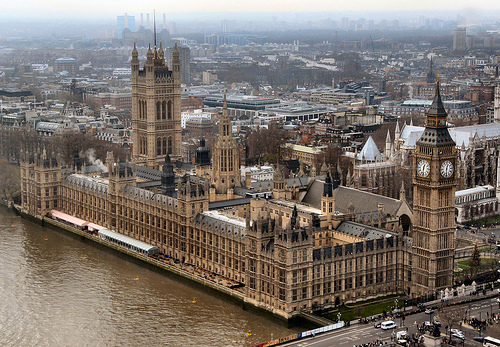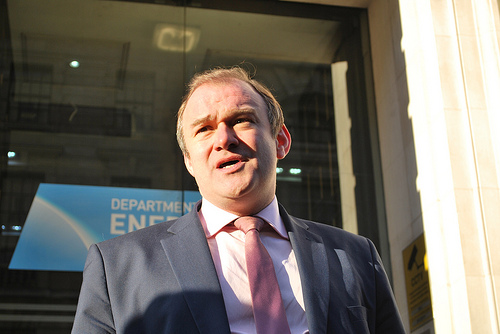
Cuts to renewables subsidies had to be enacted last year after the government failed in several areas of its administration of the Levy Control Framework (LCF), a parliamentary report has found.
The National Audit Office has released its findings following an extensive study of the LCF – dubbed ‘Controlling the consumer-funded costs of energy policies: The Levy Control Framework’ – concluding that the government’s handling of the budgetary mechanism was found wanting.
The report alleges that the government;
- Took too long to discover the cause of a much-vaunted overspend within the Framework,
- Used outdated assumptions and “insignificant” market research to back them up,
- Was guilty of poor governance of the LCF between November 2013 and June 2015,
- Failed to both consider that its assumptions were incorrect and learn from previously poor forecasting,
- Ultimately failed to ensure value for money by fully allocating the LCF budget at an early stage.
In its findings, the report stated how government estimates of total LCF spending rose from £7.1 billion in February 2015 to £9.1 billion four months later, exceeding the 20% budget headroom.
Whilst cuts to renewables subsidies have since reduced that forecasted spend to £8.7 billion, the overspend is still estimated to add an extra £17 onto the average household bill by 2020.
The NAO’s investigation of the government’s handling of the LCF has however found several areas which it claims caused both HM Treasury and the Department of Energy and Climate Change (DECC) to fail in identifying the increasing costs.
While the slump in fossil fuel prices has been repeatedly pointed to, the NAO found that this factor – a key assumption used within the LCF’s modelling of consumer levies – was responsible for just £300 million of the £2 billion overspend.
It found that other key assumptions used within the budgetary framework were far more significant and pointed towards instances where the government used “insignificant” market research to inform its assumption. The report identifies one such incident in which load factors for offshore wind turbines were not updated for 18 months despite indications suggesting that this was contributing to an underestimation of costs incurred.
The NAO also heard that a Levy Control Framework Board – established in the wake of the NAO’s last report on the LCF’s administration, comprising staff from both HMT and DECC – stopped meeting after November 2013 and was not reconvened until after the overspend had been identified.
A previous report from the NAO on the same subject warned in 2013 that poor forecasting was of significant detriment to the Framework’s management, and this year’s update has been damning in its assertion that the government has failed to learn from previous mistakes in this field. It also said that government had failed to consider that assumptions used to inform of budgetary spending could be incorrect.
Of particular concern to the NAO’s aim of ensuring the government sought the best value for money was the award of contracts under the FIDeR process, a predecessor for the Contacts for Difference scheme designed to replace the uncompetitive Renewables Obligation scheme.
FIDeR saw eight contracts awarded to predominantly offshore wind generators and the NAO has determined that these projects now take up the remaining budgetary allowance under the cap not currently occupied by RO or feed-in tariff spending.
The NAO also reserved criticism for a lack of transparency regarding the LCF’s assumptions, which it said had “prevented oversight and challenge”. It criticised the government’s decision not to publish more information regarding assumptions, insisting it was to the detriment of investor confidence.

The government has repeatedly resisted calls to reveal the assumptions behind its LCF spending figures citing commercial confidentiality, much to the ire of former energy secretary Sir Ed Davey (pictured) who has called for their publication.
Crucially, the report has also claimed that the LCF’s current structure fails to report regularly on what it describes as the “full impacts” of the technologies its levies support, particularly the notion that some of the schemes it pays for are actually forecast to reduce consumer bills. The report notes DECC analysis claiming that the estimated average annual energy bill in 2020 fell from £1,259 forecasted in November 2014 to £991 in July 2016.
While the collapse in wholesale energy prices is a significant factor in this, the wider deployment of renewable generation subsidy schemes like the RO and FiTs have at least partly enabled this collapse, leading to a situation where subsidies paid for through levies attached to consumer bills are in effect making those consumer bills cheaper.
Dubbed the ‘Merit Order Effect’, the subject was first publicly discussed within a Good Energy report released last autumn and has also been referenced by Sir Ed Davey.
While the NAO noted that the government had commissioned an internal review of its evidence base and had since “significantly improved” its approach toward gathering market intelligence a number of recommendations were issued, including;
- An annual report to parliament on LCF spending and its impact on consumer bills,
- Increased transparency over cost projections and assumption,
- And the development of new options for cost control under the LCF when its future shape is confirmed.
Amyas Morse, head of the NAO, said the government’s forcasting, budget allocation and approach had been “poor” and had not provided consumers with value for money.
“In addition, a lack of transparency over the Framework and expected future energy bills has undermined accountability to parliament and consumers. I look forward to BEIS building on recent improvements it has made to the governance of the Levy Control Framework,” he added.
